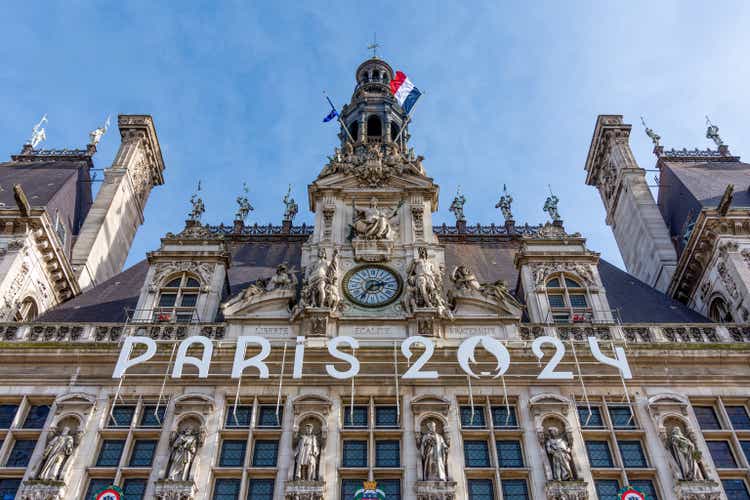
HJBC/iStock Editorial via Getty Images
The 2024 Paris Olympics are set to kick off on Friday, with the opening ceremony taking place under a backdrop of heavy security. Tens of thousands of officers and soldiers have been deployed for the waterborne opening along the Seine, with a flotilla of boats scheduled to carry athletes representing 206 countries and territories. There have already been some security incidents ahead of the big show, with arson attacks disrupting France’s high-speed rail system and many train routes being canceled along the network.
Corporate angle: The Games will offer a big stage for U.S. companies associated with the Olympic Partner program, like Airbnb (ABNB), Coca-Cola (KO), Intel (INTC), Procter & Gamble (PG) and Visa (NYSE:V). The last time around, American sponsors shied away from the spotlight during the Beijing Winter Olympics in 2022, facing pressure over abuses related to China’s minority Uyghur population, along with other human rights issues and authoritarian control. The U.S. government even boycotted the event by barring diplomatic personnel, causing many firms to lie low in their Olympic-themed commercials.
There are big viewership opportunities, with billions of people estimated to tune in globally, creating a “catalyst for sports and sportswear and more awareness across a broad base of categories,” according to analysts at Bernstein. For the host country, it can also offer greater visibility for tourism and foreign investment, as well as a chance to get big-ticket infrastructure projects over the line, though more nations have been sitting things out. In fact, the IOC was left with just two bidders (Paris and Los Angeles) for the latest Olympics and ended up awarding slots to both cities in 2024 and 2028.
The economics: The price tag to host the Games has increased in recent years as more sports were added, requiring more new venues and related housing to accommodate athletes. White elephant stadiums have been seen in host cities, while many transportation and development upgrades have also soured, despite pledges to use existing facilities and avoid huge construction costs. “There has never been an Olympic Games that has made a profit,” noted Robert Barney, director of the International Center for Olympic Studies at the University of Western Ontario. “Fold in all the costs and revenues, including federal allotments, municipal allotments, provincial or state allotments, it’s always been that a debt has to be paid somewhere.”
